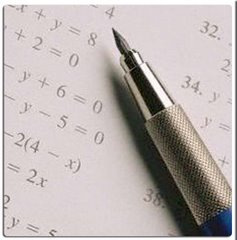An odd number added to itself an odd number of times yields
(A) an odd number
(B) an even number
(C) a prime number
(D) a positive number
(E) a perfect square
Sunday, May 6, 2007
Subscribe to:
Post Comments (Atom)
is intended to be a spot where any student preparing for GRE can discuss study topics,find or provide tips & works towards a top score along with other students working for the same goal.Answer"GRE WORD OF THE DAY", "GRE SENTENCE COMPLETION OF THE DAY", "GRE ANALOGY OF THE DAY", "GRE ANTONYM OF THE DAY", "GRE MATH PROBLEM OF THE DAY", "GRE ALGEBRA QUESTION OF THE DAY", "GRE GEOMETRY QUESTION OF THE DAY"& "GRE PASSAGE OF THE WEEK". To get a top score,the first step of the ladder starts from here.

8 comments:
A
a
A
its B not A
its B, not A....
consider number 3, add 3 to 3 three times. i.e 3 + '3 + 3 + 3' = 12 i.e even number.
the answer is absolutely odd no.bcoz eg 3+3+3+=3(3)=9 not 12.
3(5)=15.
B
@guttam
it must be and even number, the question is to add an odd number to itself odd number of times not to multiply
if the number is 3, and we all know 1 is an odd number adding 3 one time to 3 yields, 3+3= 6 or 3+(3+3+3) = 12 and so on ...
so the answer definatley is
B and even nnumber
Post a Comment